XV International Colloquium
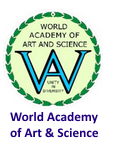 |
 |
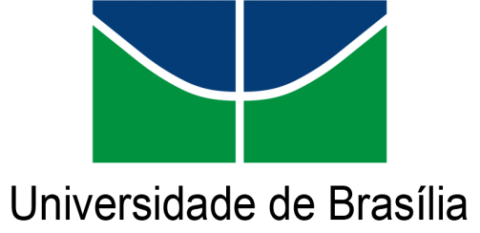 |
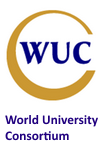 |
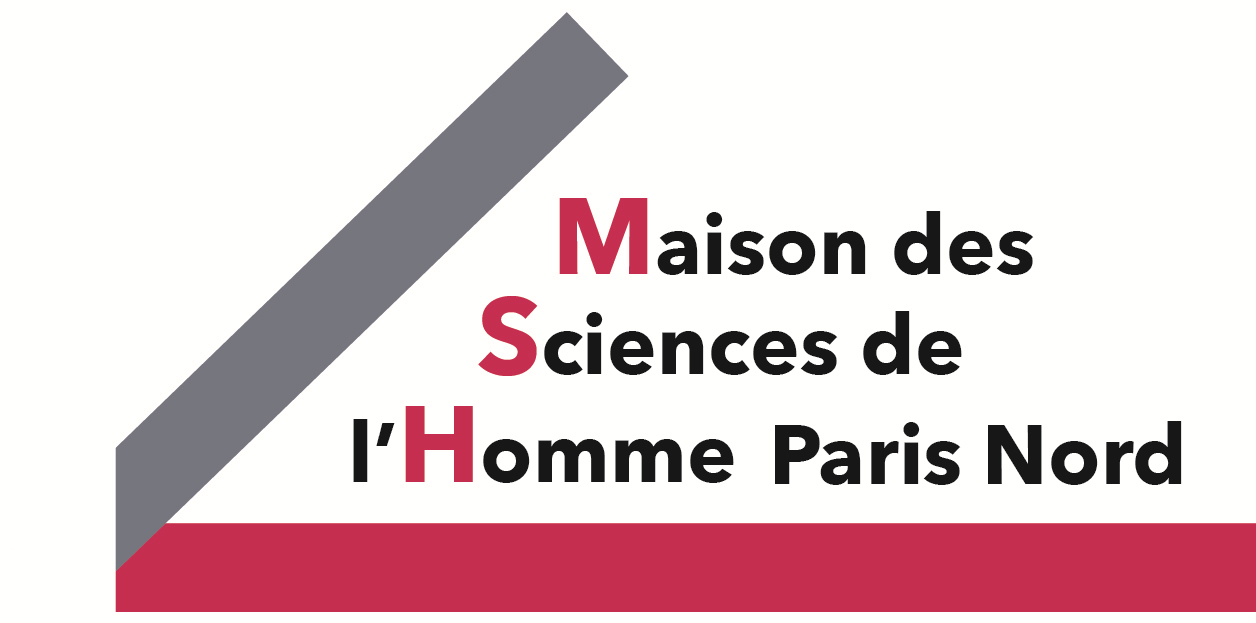 |
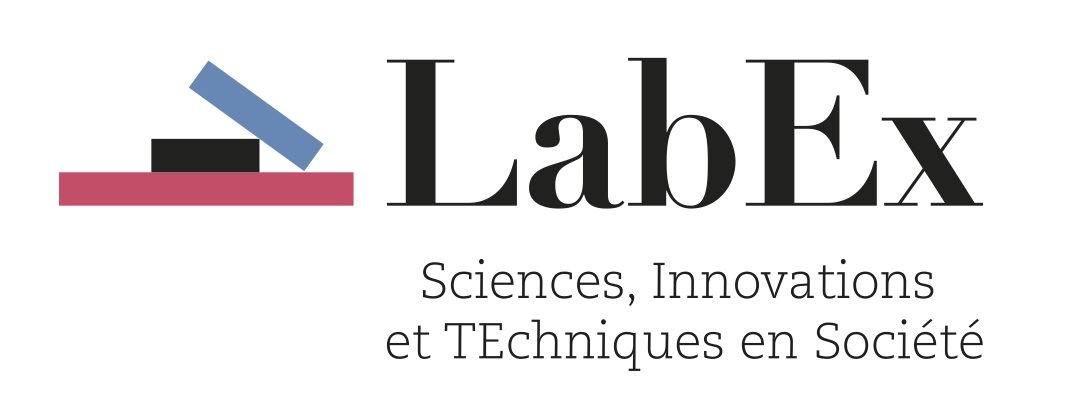 |
XV International Colloquium
Paris – May 2-4, 2018
The Role and Impact of International Institutions
on Economic Theory and Policy
at Maison des Sciences de l'Homme in Paris Nord [*]
Objectives
International institutions have for decades influenced national policies and the developing processes of internationalization in trade, financial transactions and other areas, with varying impact depending on the region and issues involved. They play an important role in promoting structural change and socioeconomic dynamics in different stages of the development process. Their role in the coordination of climate actions policies was an important determinant leading to the COP21 in Paris and the calendar of conferences established to monitor the implementation of increasingly ambitious climate actions. Their influence has been less in some other fields, especially the regulation of financial globalization. At a time when some countries are trying to reduce the influence of international institutions, it is relevant to assess how these institutions function, formulate policies, arbitrate and reconcile the interests of nation-states with those of global civil society, and exert influence at the national and international level. The 2018 Colloquium will focus on the role international institutions have play in recent decades and can play in the near future in the reformulation of both economic theory and policy to promote the economic security, welfare and well-being of all nations and all people.
Organization Institutions
Université PARIS 13, Nord
CEPN ( Centre d’économie de Paris Nord) Université Paris XIII is a pluralist research centre in economy and management associated to the CNRS (UMR 7234) . It is composed of some 60 researchers, professors and associate professors, and 80 PhD students, The CEPN is located in Villetaneuse in the northern suburb of Paris. The CEPN draws from a large array of theoretical approaches: post-Keynesian, regulationist, Marxist, conventionalist approaches, critical and historical approaches to management. The CEPN is hosting the coordination of the Erasmus Mundus EPOG program (http://www.cepn-paris13.fr/epog/) which will contribute to the organization of the conference. The CEPN is also an active member of the Maison des Sciences de l’Homme de Paris Nord MSH-PN (www.mshparisnord.fr) which is located at the northern border of Paris on the fringe of what will become in 2019 , one of the largest campus of social sciences in Europa , the Campus Condorcet (https://campus-condorcet.fr)
For more information on University ParisXIII and CEPN, please look at: https://cepn-paris13.fr
University of Brasilia
The University of Brasilia (UnB) was created on April 21,1962 following the ideas of its founders, educator Anísio Teixeira and anthropologist Darcy Ribeiro. The latter became its first president (Rector). The architect Oscar Niemeyer designed its main building, the Central Institute of Sciences (ICC), also known as the "Minhocão". The undergraduate course in Economics was started in 1963, the MSc degree in 1973 and the PhD program in 1997. Over the years the Department of Economics has been committed to teaching and research at the frontier of the discipline. One main characteristic has been its plural vision in its approach to economic theory, and its respect for the different branches that the evolutions of economic ideas have taken. The Department of Economics at UnB has always been classified among the top Institutions in the country by the federal Ministry of Education, and has a national reputation for excellence in teaching and research.
For more information on UnB, please look at: http://www.economia.unb.br
World Academy of Art & Science
The World Academy of Art and Science (WAAS) is composed of individual Fellows from diverse cultures, nationalities, and intellectual disciplines, chosen for eminence in art, the natural and social sciences, and the humanities. Established in 1960 by distinguished individuals concerned by the impact of the explosive growth of knowledge, its activities seek to address global issues related to the social consequences and policy implications of knowledge. The Academy serves as a forum for reflective scientists, artists, and scholars to discuss the vital problems of humankind independent of political boundaries. It is a forum where these problems can be discussed objectively, scientifically, globally, and free from vested interests or regional attachments. The WAAS was founded on faith in the power of original and creative ideas to change the world. Its motto is "Leadership in thought that leads to action." The aim of the Academy's founders was to function as "an informal WORLD UNIVERSITY at the highest scientific and ethical level, in which deep human understanding and the fullest sense of responsibility will meet."
WAAS is the convener of the New Economic Theory Working Group which is a network of some 20 organizations and 50 plus individuals collaborating to evolve human-centered, transdisciplinary economic theory. For more information see the group website www.neweconomictheory.org and the new economics section of Cadmus Journal.
For more information on WAAS, please see: www.worldacademy.org
World University Consortium
The World University Consortium (WUC) is a non- profit, nongovernmental, international, interdisciplinary, inter-sectoral organization founded in 2013 to promote the development of accessible, affordable, quality higher education for the whole world. WUC is dedicated to a human-centered approach to development that emphasizes the centrality of human capital, human rights, and human welfare. The consortium is open to all types of stakeholders willing to participate in a working alliance to develop effective solutions to the complex global challenges affecting different communities and nations.
For more information on WUC, please look at: http://wunicon.org/
Organizating Committee
- Pascal Petit (France), Emeritus Director of research, CEPN University of Paris 13 – Committee Chair
- Joanilio Rodolpho Teixeira (Brazil), Emeritus Professor, University of Brasilia,Vice-Chair
- Garry Jacobs (USA/India) Chief Executive Officer, World Academy of Art and Science and World University Consortium
- Barry Gills (UK/Finland), Professor, Department of Political and Economic Studies, University of Helsinki; Former Professor of Global Politics, Newcastle University
- Winston Nagan (USA), University of Florida at Gainesville, Florida
- Heitor Gurgulino de Souza (Brazil), President of the World Academy of Art and Science and World University Consortium
- Maria Rosa Borges (Portugal), Vice-President of ISEG, University of Lisbon
- António Mendonça, (Portugal), President of the School Council of ISEG and President of CESA - Centre for African, Asian and Latin America Studies
- Saulo José Casali Bahia (Brazil), Professor, Federal University of Bahia
- Zbigniew Bochniarz (USA/Poland), Professor, Kozminski University (Warsaw), University of Washington and Harvard Business School
- Neantro Saavedra-Rivano (Japan/Brazil), Graduate School of Humanity and Social Sciences, University of Tsukuba
- Mark Swilling (South Africa), Centre for Complex Systems in Transition, School of Public Leadership, Stellenbosch University (President)
- Corinne Verger Chaptal (France), Professor, University of Paris XIII, CEPN, Vice-president of EURAM (European Academy of Management)
- David Flacher (France) Professor University of Compiégne CEPN, Coordinator of the ERASMUS MUNDUS EPOG Programme
[*] The conference took place at the MSH-PN.
XV International Colloquium
The Role and Impact of International Institutions on Economic Theory and Policy
Paris – May 2-4, 2018
Presentations, Papers and Reports
- Regional labor market disparities in the Republic of Croatia by Davor Bernadić
- The Role of International Non-governmental Institutions for Sustainability by Zbigniew Bochniarz
- Ecological Pricing analyses of the Kyoto Protocol mechanisms: suggesting ways to improve policies to deal with climate change by Leopoldo Costa Junior
- Social Power and Crowdsourcing by Rodolfo Fiorini
- Digitalisation impacts in a globalized world: from digital currencies to digitalisation of public services by Rodolfo Fiorini
- Digital Currencies and the Challenge of Global Governance by Garry Jacobs
- Climate change and sustainability by Heron José de Santana Gordilho
- The Context and Values Inherent in Human Capital as Core Principles for New Economic Theory by Winston P. Nagan
- Accounting standards as a key issue to meet the current environmental challenge by Jacques Richard
- The near future to 2030 and its potential impact on the role and impact of International Institutions on Economic Policy by Gill Ringland
- The institutional challenges to the labor market and the fourth industrial revolution in the light of a new paradigm in economic thinking: The Brazilian case by Juliano Vargas and Joanílio Rodolpho Teixeira
Papers
- Who Should Govern on What Principles The Future of Decision Making Combining Nudge with Scenarious to Reach Eutopia by Elif Çepni
- Cryptocurrencies & the Challenge of Global Governance by Garry Jacobs
- The Evolution of Eclac Thought: Neoliberalism and Inequalities by Maria de Lourdes Rollemberg Mollo and Joanilio Rodolpho Teixeira
- Power and Climate Change Governance: Negative Power Externality and the Brazilian Commitment to the Paris Agreement by Danielle Sandi Pinheiro
- Cultural Complexity and Political-Economic Transformation in South Africa: The Dangers of Economic Neoliberalism by Winston P. Nagan
- The Context and Values Inherent in Human Capital as Core Principles for New Economic Theory by Winston P. Nagan
- Towards a New Economic Theory of State by A. Rubinstein, R. Grinberg and A. Gorodetsky
- Human Capital and the Future of Jobs by Neantro Saavedra-Rivano
- The invisible master – how neoliberal economics shapes the EU sustainability policy by Joachim H. Spangenberg
- The institutional challenges to the labor market and the fourth industrial revolution in the light of a new paradigm in economic thinking: the Brazilian case by Juliano Vargas and Joanílio Rodolpho Teixeira
Reports
- Report by Rodolfo Fiorini
- Report by Winston P. Nagan
- Report by Pascal Petit
- Report by Carlos Alvarez Pereira and Robert Hoffman
- Report by Joanílio Rodolpho Teixeira
 |
 |
 |
 |
 |
 |
XV International Colloquium
The Role and Impact of International Institutions on Economic Theory and Policy
Paris – May 2-4, 2018
Maison des Sciences de l'Homme- Paris Nord1[1]
AGENDA (as of March 1st)
May 02, 2018 – Day 1
(Major Focus: International Organisations)
08:30–09:00 Registration
09:00–9:30 Welcome Opening Session
- Corinne Vercher Chaptal (CEPN)
- Pascal Petit (CEPN –MSH)
- Joanilio Teixeira (Uty Brasilia)
- Garry Jacobs WAAS (World Academy of Arts and Science)
9:30–11:00 Paper Session 1
Chair: Salvatore Monni (Uty Roma 3)
- The near future to 2030 and its potential impact on the role and impact of International Institutions on Economic Policy by Gill Ringland (SAMI, UK)
- The IMF and the New Fiscalism: Was there a U-turn? by Marc Lavoie (CEPN Paris 13 , EPOG, and Uty of Ottawa) and Brett Fiebiger (Australia)
- FAO and the political economy of hunger by Pasquale de Muro (Uty Roma 3)
11:00–11:30 Coffee Break
11:30–12:30 Panel A: Social movements and social power in the governance & actions of international organizations
Moderator: Pascal Petit
Panelists:
- Gus Massiah ( board of the World Social Forum CEDETIM, Paris
- Djilali Benamrane (retired UN representative in Africa)
- Georges Menahem (CEPN-MSH Paris)
12:30–14:00 Lunch
14:00–15:30 Paper Session 2
Chair: David Flacher (EPOG, Compiégne Uty)
- Climate change and sustainability by Heron José de Santana Gordilho (Federal Uty Bahia)
- Implementing the SDGs – which SDGs? by Joachim Spangenberg (Helmotz Ctre Germany)
- The Role of International Non-governmental Institutions for Sustainability: Selected Cases by Zbigniew Bochniarz (Kozminski University) and Grazyna Lesniak-Lebkowska (Warsaw School of Economics)
15:30–16:00 Coffee Break
16:00–17:00 Panel B: International Organizations and the regulation of evolving transnational organizations
Moderator: Corinne Vercher-Chaptal (CEPN, Paris13)
Panelists:
- Huw Thomas (Bristol University)
- Cedric Durand (CEPN, Paris13)
- Lisa Tortell ( ILO, Geneva)
17:00–18:00 Paper Session 3
Chair: Neantro Saavedra (Uty Tsukuba)
- Can the design of the WTO be improved: how and with whose support? by Julien Vauday (CEPN Uty Paris13)
- Do We Still Need the World Trade Organization? by Silvia Nenci (Uty Roma 3)
May 03, 2018 – DAY 2
(Major focus: Climate policies and global structural changes)
9:00–10:00 Paper Session 4
Chair: Marc Lavoie (CEPN Paris 13, EPOG and Uty of Ottawa)
- Meeting the environmental challenge: reflecting on the OECD policy recommendations across time by Dominique Pestre (EHESS Paris)
- The evolution of ECLAC thought: neoliberalism and inequalities by Maria de Lourdes Rollemberg Mollo (Uty Brasilia) and Joanilio Rodolpho Teixeira (Uty of Brasilia)
10:00–11:00 Panel C: Integrated strategies for implementation of the SDGs
Moderator: Grazyna Lesniak-Lebkowska
Speakers:
- Adam Koniuszewski (Geneva Center for Security Policy)
- Joachim Spangenberg (Helmotz Centre for sustainable development, Germany)
- Pasquale de Muro (Uty Roma 3)
11:00–11:30 Coffee Break
11:30–12:30 Paper Session 5
Chair: Winston Nagan (Florida Uty)
- Governing climate: Opportunities and limits of the United Nations action plans after the Paris December 2015 agreement by Amy Dahan (CNRS Centre Koyré Paris)
- The international institutions and their possibilities regarding the global economic policy by Saulo José Casali Bahia (Federal Uty Bahia)
12:30–14:00 Lunch
14:00–15:30 Paper Session 6
Chair: Robert Hoffman (whatIf? Technologies Inc., Canada)
- Digital Currencies and the Challenge of Global Governance by Garry Jacobs (WAAS)
- Sustainability through Digitalization in international agendas: Expectations and disappointments by Carlos Alvarez Pereira (INNAXIS Foundation & Research Institute)
- Accounting standards as a key issue to meet the current environmental challenge by Jacques Richard (Paris Dauphine Uty)
15:30–16:00 Coffee Break
16:00–17:00 Panel D: Digitalisation impacts in a globalized world: from digital currencies to digitalisation of public services
Moderator: Carlos Alvarez Pereira (INNAXIS Foundation & Research Institute)
- Robert Hoffman (whatIf? Technologies Inc.)
- Rodolfo Fiorini (Politecnico di Milano University)
- Dimitrios Kyriakou (European Commission's Institute for Prospective Technological Studies)
17:00–17:45 Paper Session 7
Chair: Heitor Gurgulino de Souza (WAAS World Academy of Arts and Science)
- Power and Climate Change Governance: Negative Power Externality and the Brazilian Commitment to the Paris Agreement by Danielle Sandi Pinheiro (Uty Brasilia)
- Ecological Pricing analyses of the Kyoto Protocol mechanisms: suggesting ways to improve policies to deal with climate change by Leopoldo Costa Junior (Uty Brasilia)
17:45–18:30 Paper Session 8
Chair: Rodolfo Fiorini (Politecnico di Milano University)
- Regional labor market disparities in the Republic of Croatia by Davor Bernadić (Croatian Social Democratic Party)
- Life quality disparities in the Republic of Croatia by Mia Despotović (SEDAM IT D.O.O., Croatia)
May 4, 2018 – DAY 3
09:00–10:30 Paper Session 8: New economic theory
Chair: Zbigniew Bochniarz (Kozminski University)
- Towards a new economic theory of the State by Ruslan Grinberg (Russian Academy of Sciences) and Alexander Rubinstein (Russian Institute of Economics)
- The Context and Values Inherent in Human Capital as Core Principles for New Economic Theory by Winston P. Nagan (Uty Florida)
- From uniform to structural global economic development by Erich Hoedl (European Academy for Sciences and Arts)
- Human Capital and the Future of Jobs: Global Public Policy in the Age of Artificial Intelligence and Robots by Neantro Saavedra-Rivano (Uty Tsukuba)
10:30–11:00 Coffee Break
11:00–12:00 Paper Session 9
Chair: Pascal Petit (CEPN Uty Paris13)
- Human Capital and the Future of Jobs: Global Public Policy in the Age of Artificial Intelligence and Robots by Neantro Saavedra-Rivano (Uty Tsukuba)
- The institutional challenges to the labor market and the fourth industrial revolution in the light of a new paradigm in economic thinking: The Brazilian case by Juliano Vargas (Uty Brasilia) and Joanílio Rodolpho Teixeira (Uty Brasilia)
12:30–14:30 Lunch
14:30–15:30 Panel E: New Economic Theory in an evolving organization of global society
Moderator: Heitor Gurgulino de Souza and Winston Nagan
- Erich Hoedl (European Academy for Sciences and Arts)
- Gill Ringland (SAMI, UK)
- Garry Jacobs ( World Academy of Art and Science)
15:30–17:00 Concluding Session
Moderators: Pascal Petit, Joanilio Teixeira, Garry Jacobs
[1] Venue: MSH Amphitheater 20 rue Georges Sand, 250m from exit 3 of the tube station Front Populaire on line 12. https://www.mshparisnord.fr/
 |
 |
 |
 |
 |
 |
XV International Colloquium
Paris – May 2-4, 2018
The Role and Impact of International Institutions
on Economic Theory and Policy
at Maison des Sciences de l'Homme in Paris Nord [*]
1. Digital Currencies in a Globalized World -- the sudden spread of digital currencies has fundamental implications for the governance of the world in coming years and the role of the international organizations in global regulation and development. The panel can explore the implications for business, banking, central banks, taxation, financing of global projects, lending and investment. It can also examine the need to redefine a role for international law, organizations and regulation of global finance and financialization in view of this development.
2. Integrated Strategies for Implementation of the SDGs -- agreement on the SDGs is a remarkable achievement, but agreement on goals and targets is far easier than actually achieving them. The challenge is aggravated by the fact that none of the goals can be achieved in isolation from the rest and most of them require levels of international cooperation beyond what presently exists. Effective and timely implementation lies beyond the capacity and will of most national governments. Prevailing economic, social, political and ecological theory fails to provide unambiguous integrated pathways to global human security. Research on the interdependence between SDGs is urgently needed. Effective action will require concerted initiatives by a broad coalition of stakeholders at the national and international level at a time when an international social consensus is strained by widening disparities, fear for the future, and withdrawal from international commitments. This will require enhancing cooperation, coordinated action and consensus to overcome the gaps and divisions between theoretical knowledge, public policy, public opinion, business and civil society. The panel can assess the role of international organizations in meeting the need for inter-disciplinary research, theory, policy formulation, financing and coordinated implementation of actions to support achievement of the SDGs.
3. Economic Theoretical Framework of International Organizations -- growing disenchantment with mainstream economic theory has inflamed debate within academia about the need for formulation of new theoretical concepts in economics that are human-centered, transdisciplinary, ecologically sound and socially relevant and also make explicit the underlying values and assumptions on which economic theory should be based. This panel can review the explicit and implicit theoretical frameworks presently accepted by international organizations to assess their validity and relevance to global society in the 21st century and consider ways to effectuate a change in thinking on which policy recommendations and decisions are based.
4. Role of Social Power in the Governance & Actions of International Organizations -- the distribution and exercise of social power is the invisible elephant dominating economic policies at the national and international level. Broadly defined social power takes many forms -- political, legal, economic, financial, technological, military, etc. At the national level money and business exercise an inordinately powerful role through both legal and illegal channels . This panel can examine the role of different forms of social power in determining the actions of international organizations and the measures needed to promote greater democracy, transparency and equity in their activities.
5. The Evolving Organization of Global Society -- humanity organizes society through innumerable formal and informal, public and private, for multiple purposes -- security, legal, trade, transport, communication, ecology, etc., in all fields -- economic and political, social and cultural, educational and scientific, etc. -- ranging from local to global, from village fairs to global financial markets, from bilateral treaties to global strategic arms control, from local newspapers to the global internet. And that organization is evolving continuously in response to the development of society. The recent spread of fake news illustrates how thoroughly humanity is organized at the informal level of rumor and gossip and how powerful that organization can be for good or ill. Speculation is another dramatic instance of unregulated informal organization. This panel will examine the present stage and state of social organization at the international level, identify the the fields in which the international community has developed the highest and most effective forms of organization and in those in which it lags furthest behind in meeting the pressing challenges confronting global society today, and frame recommendations for accelerating the development of effective organization to address critical gaps.